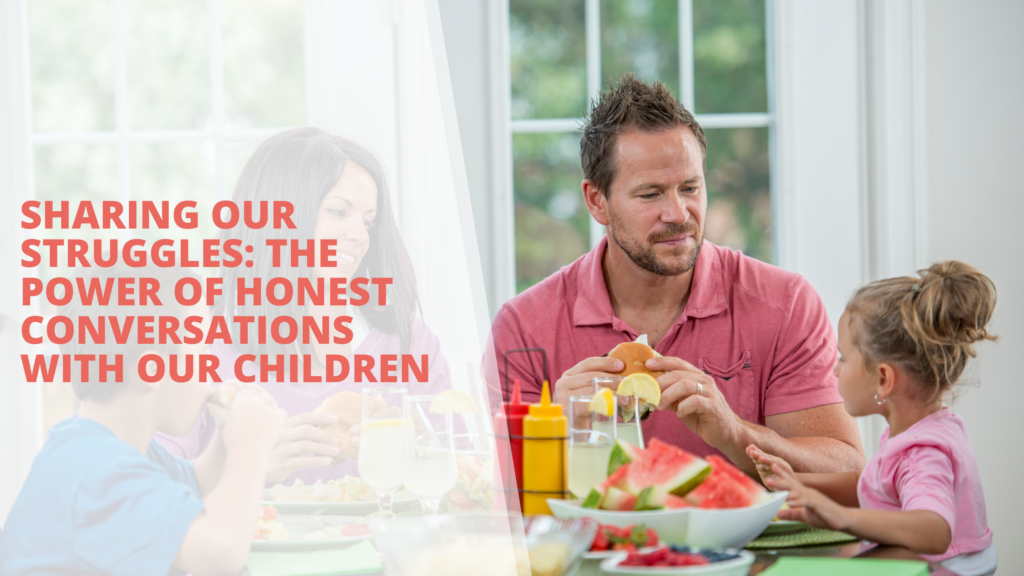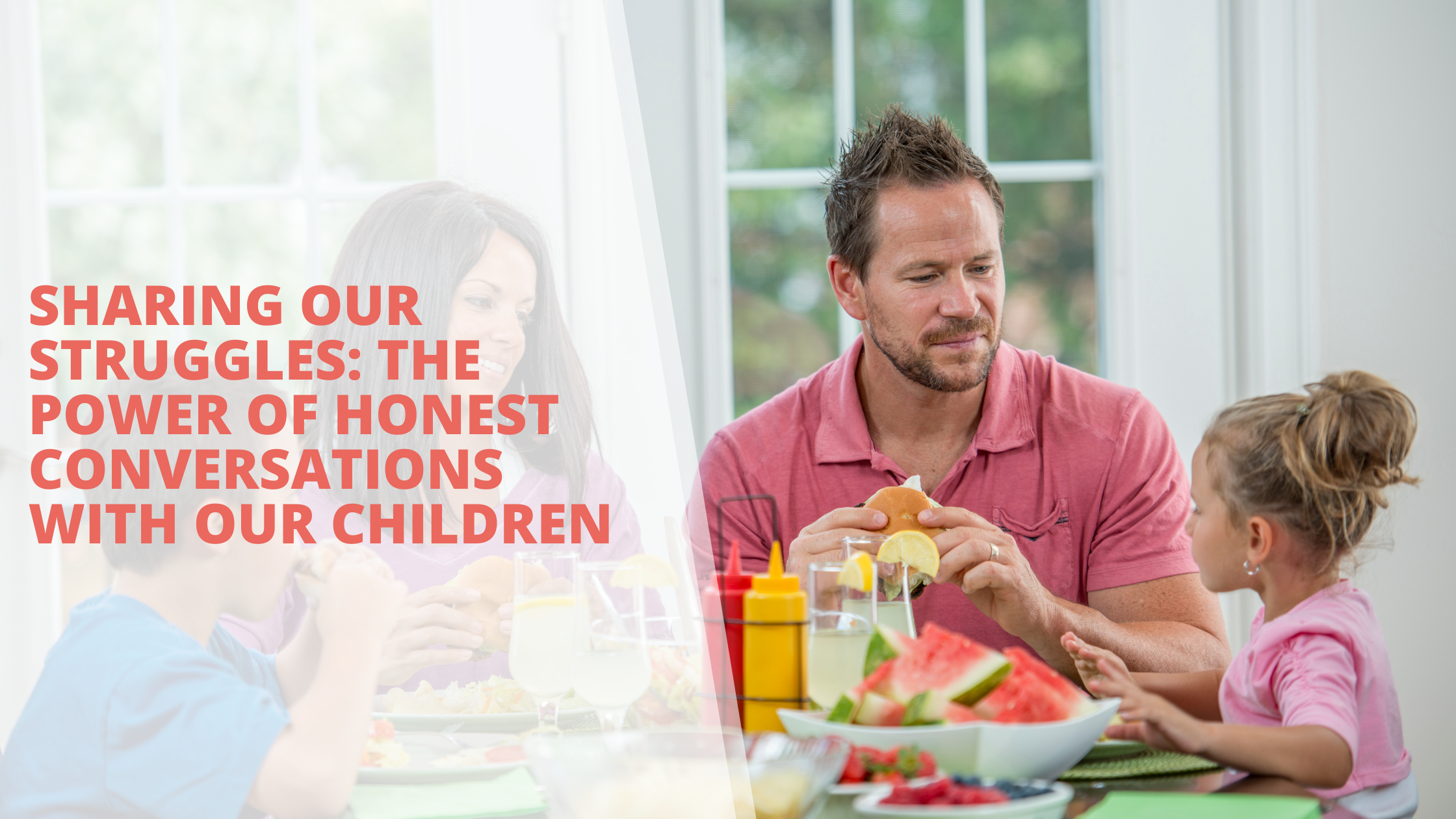
Life isn’t always easy, and as parents, we often find ourselves facing stress, grief, or personal challenges. It’s natural to want to shield our children from these difficulties, but sharing our struggles—appropriately and with care—can strengthen family bonds, build resilience, and foster empathy in our kids. A problem shared is truly a problem halved, and through open communication, we model honesty and vulnerability that our children can learn from.
Creating Space for Connection and Honesty
The Table Talk Project is all about creating a space for meaningful conversations at mealtimes, where families can connect and share their thoughts, feelings, and experiences. But it’s not just about the kids sharing their day; it’s also an opportunity for parents to open up about what they’re going through in a way that’s honest yet considerate of their children’s understanding.
When we talk about our struggles—be it stress from work, the sadness of losing a loved one, or personal frustrations—we invite our children into a world where emotions are normalised, and empathy is nurtured. These moments teach kids that it’s okay to have difficult feelings and that sharing those feelings is not about burdening others but about connecting and supporting each other.
Why Sharing Our Struggles Matters
- Building Family Resilience: When children see their parents handle tough times, it helps them learn coping mechanisms. They witness resilience in action and understand that challenges are a normal part of life. This exposure prepares them to face their struggles with a sense of hope and determination.
- Fostering Empathy: By sharing our emotions, we give our children the chance to practice empathy. When we talk about our bad day or express our sadness, we’re not asking them to solve our problems. Instead, we’re showing them how to listen, respond, and offer comfort—skills that are crucial for healthy relationships both inside and outside the family.
- Normalising Vulnerability: Children often see their parents as invincible, but showing vulnerability teaches them that it’s okay to feel and express emotions. This normalisation breaks down the stigma around talking about feelings and paves the way for your kids to feel safe sharing their own emotions.
- Strengthening Trust: Honest conversations foster a sense of trust between parents and children. When we share what we’re going through, we create a two-way street of communication, reinforcing the idea that the family is a safe space for everyone’s experiences.
Practical Tips for Sharing with Your Children
- Choose the Right Moment: The dinner table is an ideal setting for these conversations because it’s a natural pause in the day where everyone gathers. Use this time to share something about your day—good or bad. For example, “I had a really stressful day at work, and I’m feeling a bit overwhelmed, but I’m glad we’re all here together.”
- Be Age-Appropriate: Tailor your sharing to your child’s age and maturity level. Young children don’t need all the details, but you can still express your feelings in simple terms: “Mum’s feeling a bit sad today because I miss Grandma.” Older kids and teens can handle more nuanced discussions and might even offer their perspectives.
- Invite Empathy, Not Solutions: Let your kids know that you’re not looking for answers—just company. A phrase like, “I just needed to talk about it; thank you for listening,” reassures them that they are not responsible for fixing things.
- Model Healthy Coping: Show your children how you handle your emotions in constructive ways, like taking a walk, journaling, or talking it out. This helps them develop their strategies for managing stress.
- Encourage Mutual Sharing: Encourage your kids to share their struggles too. Ask open-ended questions like, “What was something tough for you today?” This reciprocal sharing strengthens the family bond and promotes emotional intelligence.
The Table Talk Project: A Space for Honest Conversations
The Table Talk Project is designed to make these conversations easier by creating an environment where sharing is part of the routine. It’s a space where parents and kids alike can voice their thoughts without judgment, creating a family culture that values honesty, understanding, and connection. Through simple prompts and engaging discussions, families learn that everyone has a voice at the table, and every voice matters.
By embracing open conversations about our struggles, we’re not just teaching our children about resilience and empathy—we’re building a stronger, more connected family. So, next time you sit down for a meal, don’t be afraid to share a bit of your heart. You might find that the simple act of talking can turn a tough day into a moment of connection, reminding everyone at the table that they are not alone.
Encourage, Share, and Connect
Remember, sharing your struggles isn’t about making your family carry your burdens. It’s about creating a circle of trust and empathy where everyone feels seen, heard, and supported. The dinner table is more than just a place to eat; it’s a space for building the emotional muscles that keep us strong, both individually and as a family.
Join The Table Talk Project today, and let’s make mealtimes a space where honesty, empathy, and resilience thrive.

